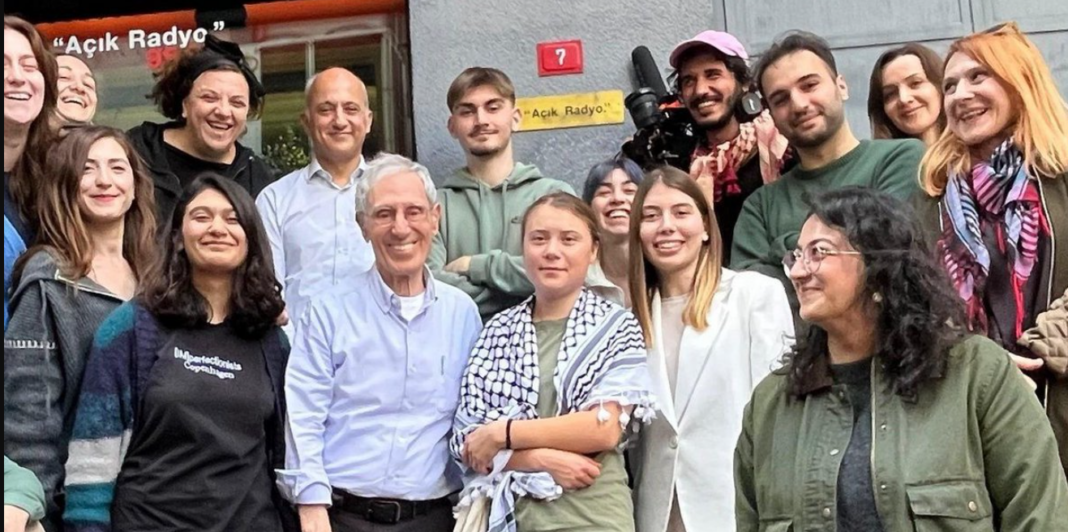Swedish climate activist Greta Thunberg on Friday visited İstanbul’s Açık Radyo, whose broadcasts were silenced earlier this month by Turkish authorities after a guest spoke on air about the “Armenian genocide,” the station said, according to Agence France-Presse.
“Greta supports Açık Radyo,” it wrote on X, posting a video of the 21-year-old activist expressing support for the broadcaster, whose name means “open radio.”
Greta'dan #AçıkRadyoAçıkKalmalı mesajı: "Açık Radyo açık kalmalı! İklim krizi ve insan hakları konusunda gerçekleri söyleyen dürüst medya platformlarına sahip olmamız her zamankinden daha önemli."
Greta supports Açık Radyo: "Açık Radyo should stay open! I support Açık Radyo. It… pic.twitter.com/KdS2hEoTFA
— Açık Radyo (@acikradyo) October 25, 2024
“Open Radio should stay open! I support Açık Radyo. It is more important than ever that we have honest media platforms that tell the truth about the climate crisis and human rights,” Thunberg said.
Turkey’s broadcasting watchdog RTUK suspended Açık Radyo for five days in May on grounds of allegedly inciting hatred, then withdrew its license in July, although it continued broadcasting until mid-October.
The sanctions came after an April broadcast in which a guest called the 1915 killings of Armenians in the final days of the Ottoman Empire-era “genocide.”
Many historians agree with the term, but it has been fiercely disputed by successive Turkish governments.
Co-founded some 30 years ago by prominent Turkish environmental activist Omer Madra, Açık Radyo’s broadcasts addressed human rights, minority rights and ecological issues.
Its last broadcast was on October 16, but it has vowed to appeal the ban and return to the airwaves.
Reporters Without Borders (RSF) denounced the closure, saying the station “embodied pluralist information, respect for cultural and political minorities, as well as the fight for the climate and ecological awareness.”
Armenia says Ottoman forces massacred and deported more than 1.5 million Armenians during World War I between 1915 and 1917, with some 30 countries recognizing the killings as genocide.
Turkey rejects the charge, although it acknowledges that up to 500,000 Armenians were killed in ethnic fighting and massacres or died of starvation during mass deportations from eastern Anatolia.


